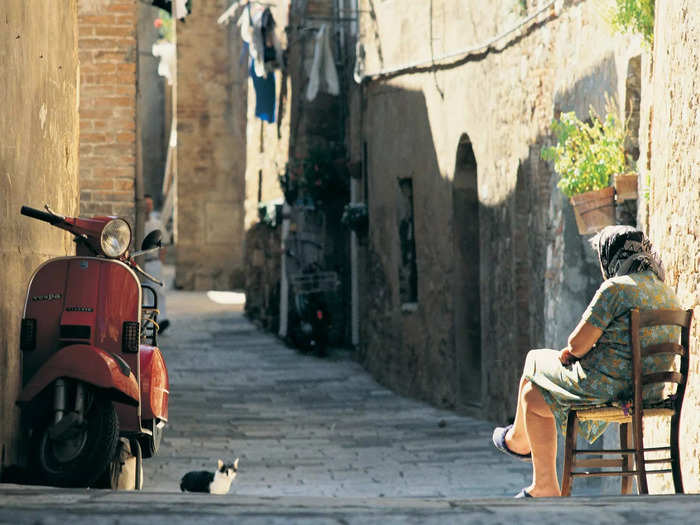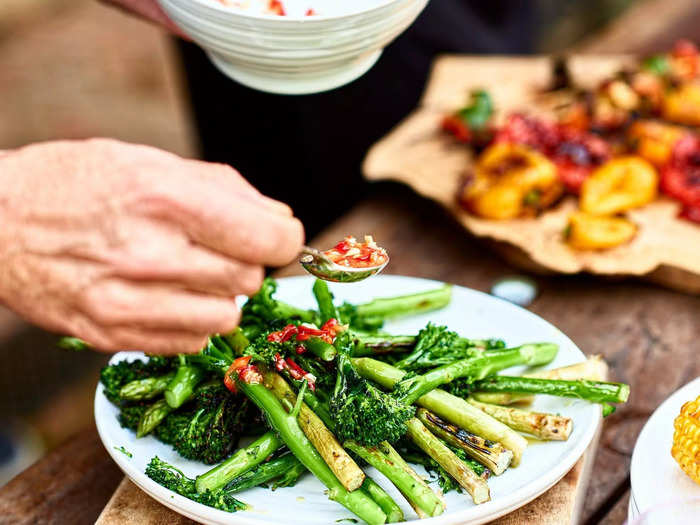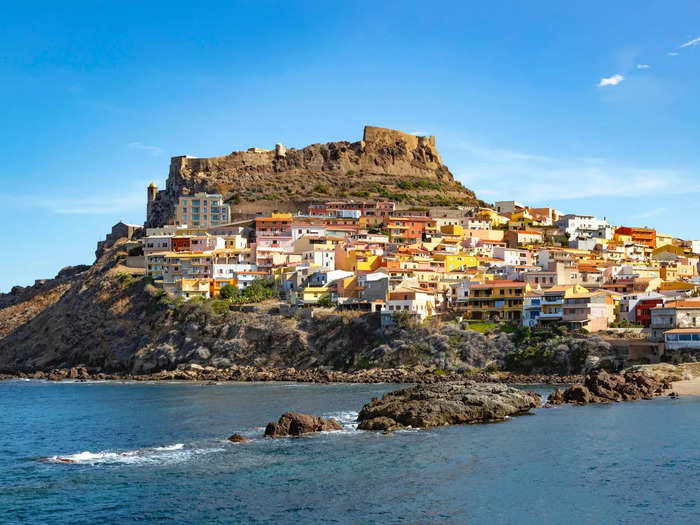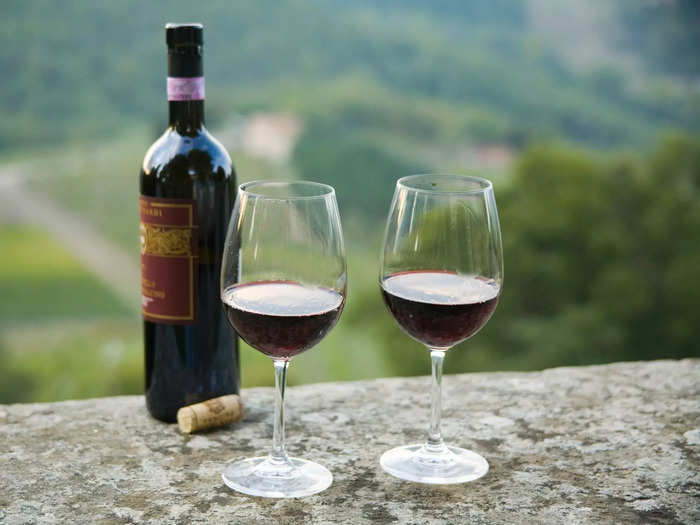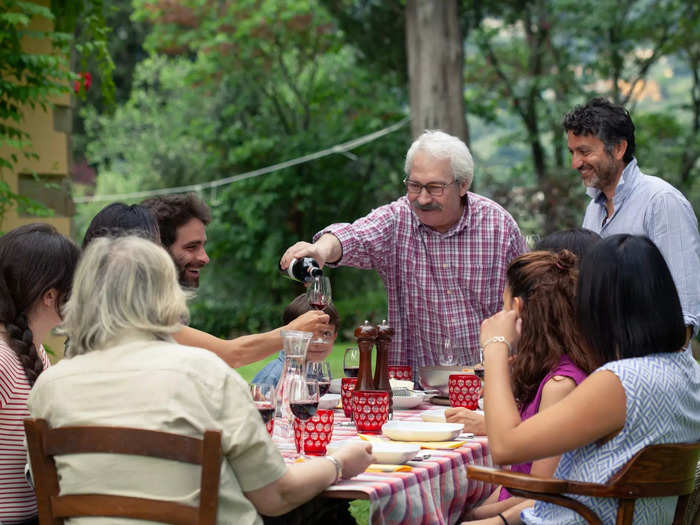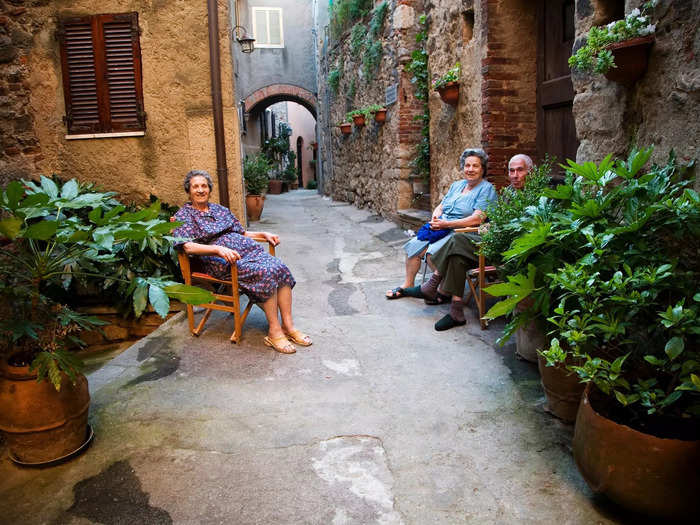Sardinia is one of the world's Blue Zones.Ph. Francesco Ciccotti/ Getty
- Sardinia, Italy, was the first Blue Zone — where people regularly live to 100 — to be identified.
- Dan Buettner, who studies these longevity hotspots, has a new Netflix series out about Blue Zones.
Sardinia is a rugged island off the Italian mainland that is dotted with forests and has miles of beautiful sandy beaches. It's also happens to be where you'll find the highest concentration of men over the age of 100 on the planet.
Sardinia was the first of five locations to be identified as a 'Blue Zone' where people live the longest by researchers Gianni Pes and Michel Poulain.
The locations are named Blue Zones after the blue circles the pair used to mark where the longest-living populations lived on a map, and which completely covered an area of Sardinia.
Author and explorer Dan Buettner identified four more Blue Zones and has been exploring the habits and lifestyles of people in all five locations for the past 20 years, and has a recently released Netflix series and book about his findings.
Unusual numbers of people in Sardinia live to 100
Sardinia is home to an unusual number of centenarians. Peter Adams/ Getty
In most populations, women outlive men on average — in the US, women who live to over 100 outnumber men over 100 by six to one.
But in the Sardinian Blue Zone, the ratio is almost one to one, and there are almost ten times more centenarians per capita than in the US, according to the Blue Zones website.
In villages in a kidney-shaped region of the island, people regularly live to over 100, which Buettner says is partly because of their genes but also partly because of their traditional, healthy lifestyles.
Many Sardinians eat a plant-based diet, with very little meat
Sardinians eat lots of vegetables and goats cheese. 10'000 Hours/ Getty
People in Sardinia tend to eat a very traditional Mediterranean diet, which consists of mostly whole grains, vegetables, dairy products, and not much meat.
"The food is beans, greens, and whole grains," Buettner told NBC News in 2019. "They also eat a lot of bread and cheese, mostly Pecorino, and food from their garden."
He said it is essentially "peasant food," with simple, fresh ingredients, and meat reserved for Sundays and special occasions.
Many of the Sardinian dairy products that people on the island consume are made from goat's milk, which, as Insider previously reported, contains more protein than cow's milk and could help the body absorb other nutrients.
Exercise is built into everyday activities
Sardinian SuperAgers live long, traditional lives Mieneke Andeweg-van Rijn/ Getty
The diet of people in Sardinia is "maybe only twenty five percent" of the reason why they live so long, according to Buettner. Their lifestyles also contain lots of opportunities for what's known as incidental exercise.
Sardinia is a very mountainous island, with lots of steep hills, and people tend to walk more than they use their cars.
"They are getting low intensity and medium intensity exercise all the time. There are dozens of periods of physical exertion throughout the day, and people aren't driving for the most part; they're walking," Buettner said.
There are still lots of traditional shepherds in Sardinia, who walk more than five miles a day, according to Buettner. Walking is great for cardiovascular health and has been linked to increased longevity as well as a host of other health benefits.
Like many residents of other Blue Zones, Sardinian SuperAgers drink alcohol in moderation
Sardinians drink a local wine which is rich in antioxidants. David Epperson/ Getty
Sardinians do drink alcohol, in moderation. Local wine, called Cannonau but otherwise known as grenache, is high in antioxidants, which have been associated with better cardiovascular health. Buettner suggested that the moderate drinking habits in Sardinia could also explain the lower levels of stress amongst men from the island.
Sebastian Piras, a photographer and filmmaker from Sardinia, told NBC: "there's a tradition of buying your friend a glass and then they buy you one and then someone else buys you one and the [cycle continues]."
It's worth noting that the World Health Organization says that there is no safe amount of alcohol that does not affect health.
Community and family are a big part of Sardinian life
Sardinians spend a lot of time with family. Sofie Delauw/ Getty
Sardinians are big on community and family, like many Blue Zone communities are, and Buettner said that elders are celebrated in Sardinia.
Piras said: "Usually there will be two or three generations of a family living in the same household. The family connection is extremely tight, and there is [an effort] in keeping family together."
One 2017 study has suggested that looking after children may reduce grandparents' mortality, and having strong connections with others has been linked to longevity, no matter whether those relationships are friendly, familial, or between acquaintances.
Work is relaxed and not people's main priority
Work is not the priority for Sardinians - family and community are. Johner Images/ Getty
People often come home from work to have lunch with family, and some people may not return to the office, Piras said.
"Generally, if you ask them their priorities, you will hear again and again that family is number one. And there's no option for loneliness; they're connected everyday, and rather than waking up thinking about how to advance in their career, they're waking up thinking about how their children, grandchildren and great grandchildren are thriving," he said.

